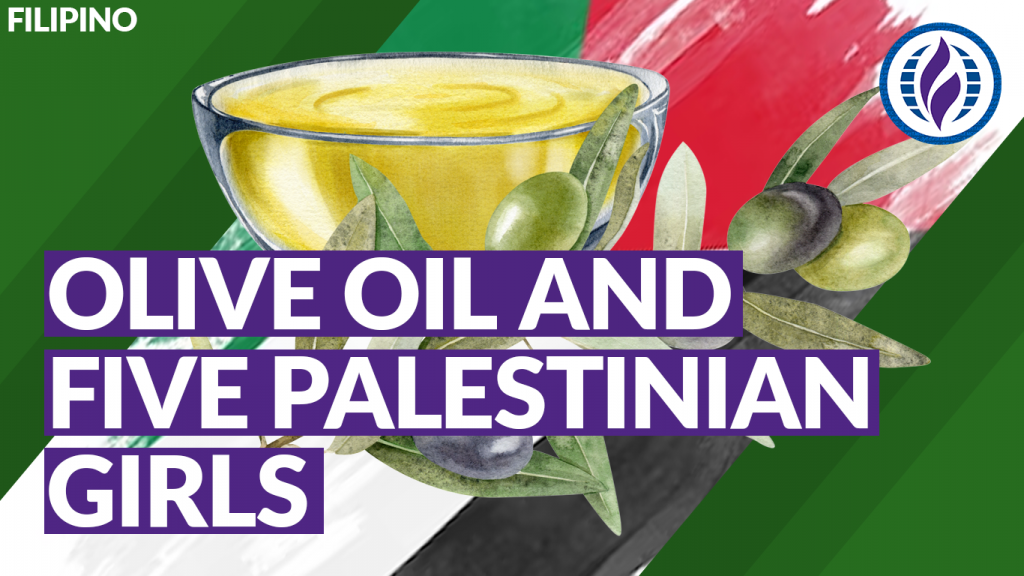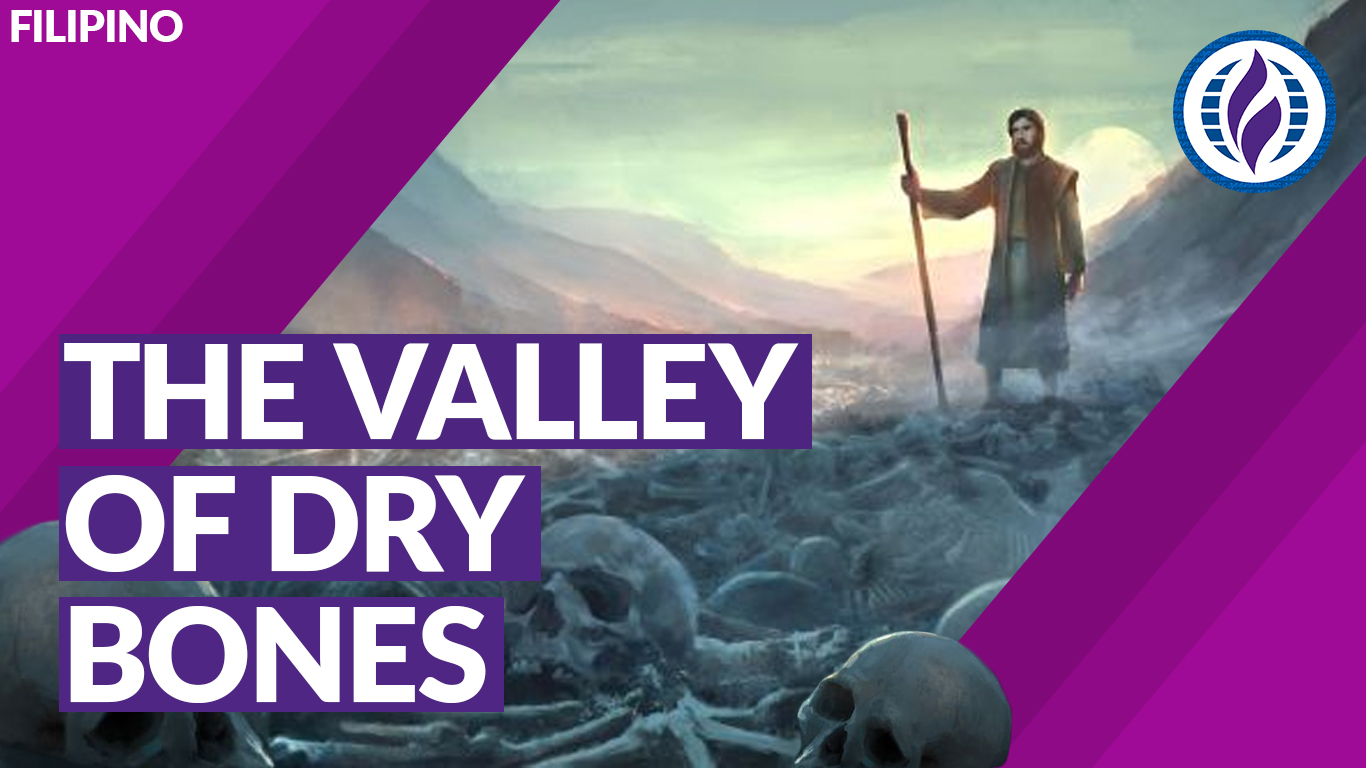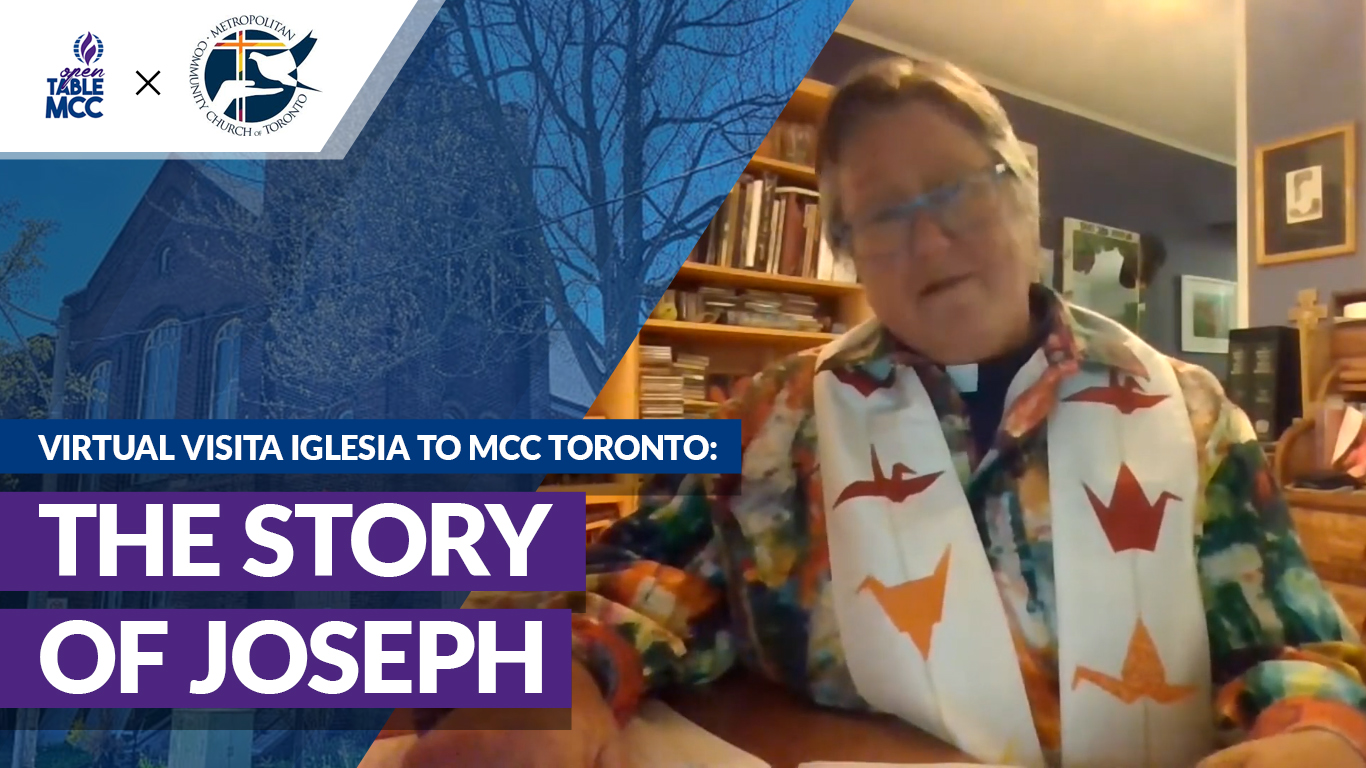“Then the kingdom of heaven will be like this. Ten young women took their lamps and went to meet the bridegroom. Five of them were foolish, and five were wise. When the foolish took their lamps, they took no oil with them, but the wise took flasks of oil with their lamps. As the bridegroom was delayed, all of them became drowsy and slept. But at midnight there was a shout, ‘Look! Here is the bridegroom! Come out to meet him.’ Then all those young women got up and trimmed their lamps. The foolish said to the wise, ‘Give us some of your oil, for our lamps are going out.’ But the wise replied, ‘No! there will not be enough for you and for us; you had better go to the dealers and buy some for yourselves.’ And while they went to buy it, the bridegroom came, and those who were ready went with him into the wedding banquet, and the door was shut. Later the other young women came also, saying, ‘Lord, lord, open to us.’ But he replied, ‘Truly I tell you, I do not know you.’ Keep awake, therefore, for you know neither the day nor the hour.
Scripture Reading
Matthew 25:1-13 (NRSV)
For thousands of years, olive oil was important in the ancient Canaan. So, before there was even Palestine or modern state of Israel, there was the ancient Canaan.
Olive oil was important in Canaan and ancient Israel up to the time of Jesus. And all the way to the time of the Ottoman Empire, the Roman Empire before that, and up to now, in the land of Palestine, illegally occupied by the modern state of Israel.
Olive oil was used in so many ways, from food to healing and wellness, export and trade, as well as fuel for evening lights when there was still no electricity.
Today, in almost all church buildings in the Holy Land, olive oil continues to be used for oil lamps. Olive oil was deeply part of the life, culture, and religion of the people. Olive oil was used in almost everything, and therefore, greatly valued and loved. Olive oil was life. It was life. It was healing, it was worship, it was celebration for thousands of years for the people living and dying in the lands of Mesopotamia, Egypt, Canaan, Greece, and many other neighboring places in the Mediterranean.
In our Gospel Reading, from the Gospel according to Matthew, there was a wedding that was about to happen. Though the people in the story were waiting for the bridegroom, who was said to be late.
And like today, in the story, the parable distinguishes two types of bridesmaids. Those who had more than enough oil and those who did not.
In the story, the Greek word translated as “foolish” in English might also be translated as “naive.” So, it can be translated as “naive” rather than “foolish.”
The bridesmaids, all 10 of them, fell asleep waiting. Five were wise, five were naive. (Not foolish. The Greek text supports that reading or that translation.)
The Gospel says that one group of the bridesmaids, who were “wise,” took flasks of oil together with their lamps. But it did not say where they got their extra oil. Readers for several hundred years, assumed and imagined that the wise ones went to the market to buy extra. Pero hindi ‘yon sinabi doon sa story. We just imagined and assumed that. We imagined this because the last part of the story, the last part of the parable, ‘yon ‘yong ginawa ng mga naive.
It did not say where and how they got their additional flasks of oil.
As my former professor suggests, no one is foolish among the bridesmaids. It is illogical and unthinkable that some of them would not have sufficient oil in their oil lamps given the situation and the anticipation of the bridegroom and the celebration that would transpire when he arrived. It is safe and it is logical to assume that everyone was prepared.
Perhaps as the original Greek supports the other five were naive enough to think that there will be sufficient for everyone, and no one will take advantage of them. They were also naive to think that everyone will be kind and compassionate, sharing resources as they did. That if they just were neighborly, others will be neighborly with them. However, then and now, there will be those who will take advantage of the naive kindness and innocence of some. Overnight, like the coming of the bridegroom, Palestinians, like the women in the story, not only lost their oil, but they were also pushed out, and then walled out from community and from the celebration. Their oil (we can also imagine and assume) were taken by the wise and the coming. Therefore, they were forced to leave by circumstance to look for oil outside. And then when they returned, they were not allowed to enter. They were walled out. Or more accurately, walled in.
Today, what many people of faith considers to be “holyland,” The kingdom of God, it is as it was in the parable: the wise and the cunning – took away not only the oil from the Palestinian Christians and Palestinian Muslims, and perhaps some Palestinian Jews, who were living harmoniously with each other for hundreds and hundreds of years, but took away even their land where the Olive trees grow.
And there are stories that olive trees are not “trees” for the people growing them. The trees are considered as “family.” Took away their land with olive trees to grow. Took away their homes where their families from countless generations lived and celebrated weddings and festivals. They took their homes and have shut the door.
The wise Zionists have put up great walls and told the Palestinian women, like in the story, “Go away, I do not know you.”
Walled out.
And even with the agreements and international laws passed, the wise continue to take more and more of the territories of what has already been agreed upon. They continue to take olive trees and oil. Homes and land, rights and freedom. Even today.
But do you think that this is unique to Palestine? Ang nangyayari ba sa Palestine ay kanila lang? Napakalayo mula sa atin?
From the Spanish colonization up to the American colonization, and all the way to the early days of the Philippine Republic after World War II.
There were continued attempts to Christianize Mindanao, through small but frequent influx of migrants from Luzon. Some Tagalogs and a lot of Ilocanos migrated to Mindanao. There were some mentions that during the Martial Law, Marcos Senior encouraged many Filipinos from Luzon and other places to relocate to Mindanao.
It’s our version of occupation.
It is alleged that Marcos Senior and his military created the infamous “Ilaga,” an unofficial group of mercenaries created to attack Moro and Lumad communities. And consequently, taking land and territories from the Lumad and the Moros.
These stories were common in Mindanao.
Do you know that like Palestine, Mindanao is also called the land of promise because of the natural resources that has not yet been fully tapped. It is also called the land of promise because it is also known as a rich agricultural land. And so, as Filipinos, we do have historical experience, a little bit of the same as those of the Palestinians. Our Moro and Lumad siblings from Mindanao, knows the occupation and annexation even today by Luzon occupiers in Imperial Manila.
Some of them experience the wise Manilenyos and other Tagalogs, tulad ng mga bridesmaid na natulog lang nang sandali at paggising nila, kulang na ang kanilang langis, maraming Moro at katutubo ang nagulat na lamang na ang lupa at likas na yaman ay kinukuha na sa kanila. It is therefore no wonder that it was us, the Philippines, as one of the crucial and deciding vote in the UN for the creation of the modern state of Israel. (Na sobrang nagpapasalamat ang modern state of Israel in perpetuity, puwede tayong pumunta sa kanila nang walang visa.)
It is no wonder that we voted because we were doing the same to Mindanao almost at the same time, And also because we were under strong American neo-colonizing control at the time.
But here is the real question: so what? Why should we care as Filipino LGBTQIA+ people who are far and distant both from Mindanao and from Palestine? Why should we care? Bakit natin kailangan maging maalam at mamulat sa nangyayari sa Palestina? Bakit natin kailangan mapakinggan ang kanilang kuwento, kasaysayan, at mga nangyayari sa kanila ngayon? Bakit?
First, because you are human. Because they are human. If you do not care or feel nothing for them, maybe you should look deep into yourself for your humanity. The the first and primary reason why should anyone care is because we are human and they are human.
Second. For this church, and for many LGBT organizations, we advocate and voice out and do a lot of things and projects in the name of human rights and human dignity. And therefore, I cannot imagine any LGBT organization who does not support the right to life, the right to freedom of the Palestinian people who have been suffering for decades. We should support and pray for any people, not just the Palestinians, For any people who are deprived of rights and dignity, or worse, killed because of their rights and dignity.
Third. As LGBT people, because we know what it means to be dispossessed, like the Palestinians. Many LGBTQIA+ people are excluded and thrown out of their own homes or stay in a home that feels like a suffocating prison. To be used and abused with our gifts and resources, to be used and abused by the “wise” and the cunning, na pinapakinabangan lamang tayo pero ‘pag wala nang kailangan sa atin, we’re thrown out as fast as fast and as soon as they can. We know what it means to be in constant fear for our lives and well-being because of extremist people, particularly extremist people who use faith for their purposes. And some of them are even within our own families. Because we have Palestinian LGBTQIA+ sisters and brothers and siblings who are also dying right now in Gaza. And being dispossessed in the West Bank.
Now, I recognize, and we have to recognize, that there’s very little we can do. Minsan, ‘yan ‘yong rason bakit ayaw nating makialam, ayaw nating pakinggan, ayaw nating panoorin, because we feel that there is almost nothing that we can do. And valid ‘yan. Ang pakiramdam na ‘yan, valid ‘yong discomfort. Valid ‘yan.
Every week, since 2019, we have been praying for the Palestinian people and other places of conflict in our worship. We continue to pray for them, not as an excuse to do nothing. But continue to pray for them with the understanding that sometimes, given the circumstance, it is one of the best things we can do for them, and for ourselves, and for our humanity. Continue to inform yourself and others. continue to share accurate information about Palestine and modern-day Israel. As best as we can, let us stop purchasing Starbucks and McDonalds, and other companies that support what’s happening in Israel. Maybe not always, but as much as you are able and can avoid those companies who support gencide.
If possible, kung posible, kaya ng oras n’yo, paminsan-minsan, makialam naman tayo. Mag-attend tayo if there’s a call for protest or rally for Palestine. If you have some money to spare donate to reputable organizations who have access and can provide assistance on the ground.
Today, there’s no anticipation or preparation for any celebration of any wedding or festival in the land many people claim to be holy. No flower girls, nor bridesmaids, smiling and laughing while holding oil lamps. Only despair. Only death. Only destruction which they been experiencing for decades.
Knowing what it means to be thrown out, excluded, and dispossessed. Knowing what it means to live in fear or feel like you are in prison inside the closet. I encourage you. And if you are a follower of Jesus (who is a Palestinian from Nazareth from Galilee.) We should support every Palestinian girl and indeed everyone of them whose oil and oil lamps has been taken and put out. Let us support them in the name of Mary of Nazareth, the mother of Jesus, who lived in Galilea Palestina, but who continues to do so in the bodies of every Palestinian living and dying today.
Podcast: Play in new window | Download
Subscribe: Apple Podcasts | Spotify | RSS



